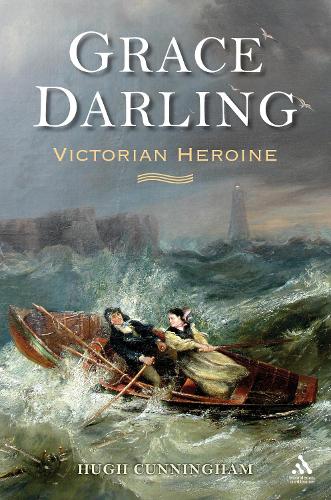
Grace Darling: Victorian Heroine
Publishing Details
Grace Darling: Victorian Heroine
By (Author) Prof Hugh Cunningham
Bloomsbury Publishing PLC
Hambledon Continuum
23rd June 2007
United Kingdom
Classifications
General
Non Fiction
942.070922
Physical Properties
216
Width 156mm, Height 234mm
490g
Description
In the early morning of 7 September 1838, Grace Darling, the daughter of the keeper of the Longstone Light on the Farne Isles, rowed with her father to rescue survivors from the wrecked steamer Forfarshire. Her heroism caused a sensation. She was asked to appear at a London theatre and an Edinburgh circus. Queen Victoria headed the subscription list for a fund to support her, and Wordsworth was one of many poets who sang her praises. Immediately a national heroine, Britain's Joan of Arc, her fame spread throughout the world. Grace Darling: Victorian Heroine tells the extraordinary story of how Grace became a celebrity, her name and image used to sell books, soap and chocolates; and of how, since her tragic early death in 1842, her deed and her fame have been kept alive into the twenty-first century.
Reviews
Mentioned in the Northumbrian (Main) October 2007
Title mention in East Riding News, 2007
"This well-researched book outlines the amazing story of how [Grace Darling] became a celebrity -- her name enough to endorse soap and chocolates -- and how the story of her deed and her fame have survived." Reviewed in Berwick Advertiser, 2007.
Title mentioned in Unite.
"the most definitive work yet on the 'Grace Darling' industry. This work is absolutely full of detail and interesting ideas" Reviewed by Jo Stanley in Women's History Magazine, 2008
"A wide-ranging and highly engaging account ... [the book] offers a model of what good cultural history can be" - The Journal for Maritime Research
'This study is well done and offers numerous insights not just into the Grace Darling story but into the nature of heroism itself.' - Contemporary Review
Author Bio
Hugh Cunningham is Emeritus Professor of Social History at the University of Kent. His books include Leisure in the Industrial Revolution, The Challenge of Democracy: Britain 1832-1918, Children and Childhood in Western Society since 1500 and The Invention of Childhood.
